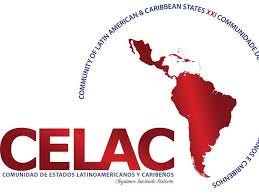In my last commentary, I discussed the emergence of CELAC in historical context. I reviewed the spectacular economic ascent of the United States, its need to develop imperialist policies with respect to Latin America and other regions of the world in order to respond to its problem of overproduction in relation to its national economy, and its creation of OAS as a diplomatic mechanism for the advancement of its imperialist objectives in Latin America and the Caribbean. And I discussed the resistance of the peoples of Latin America and the Caribbean and the Third World to U.S. and Western imperialism, including the formation of international and regional associations to defend their interests, which attained advanced expression with the creation of CELAC in 2011. See “CELAC and OAS,” January 24, 2023.
In its first ten years, CELAC held six summits of heads of state, in Chile, Cuba, Costa Rica, Ecuador, the Dominican Republic, and Mexico. They were held annually from 2013 t…



